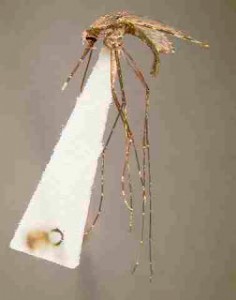Consortium for the Barcode of Life,
Smithsonian Institution
14-Sep-2007
Major advances foreseen in health, consumer and environment protection, more
 About 350 DNA barcoding experts from 46 nations will converge in Taipei amid spiralling interest from health officials, government agencies and others beginning to realize potential applications in a range of areas — from consumer protection and food safety to disease prevention and better environmental monitoring.
About 350 DNA barcoding experts from 46 nations will converge in Taipei amid spiralling interest from health officials, government agencies and others beginning to realize potential applications in a range of areas — from consumer protection and food safety to disease prevention and better environmental monitoring.
Specifically, this burgeoning three-year-old scientific field could, among many other things, help get illegal fish and timber out of global markets, slow the spread of invasive pests, reduce bird-plane collisions, and uncover the hideouts of medically-important species of mosquito.
Government agencies, particularly in North America but elsewhere as well, are expanding investments in applications for the new technologies that identify and distinguish known and unknown species ever more quickly, cheaply, easily and accurately based on snippets of DNA code.
Full text: http://www.eurekalert.org/pub_releases/2007-09/cftb-asg090707.php
Coverage results: http://spreadsheets.google.com/ccc?key=pRwdzmg01IrQ_lTsdPZw3NQ&hl=en